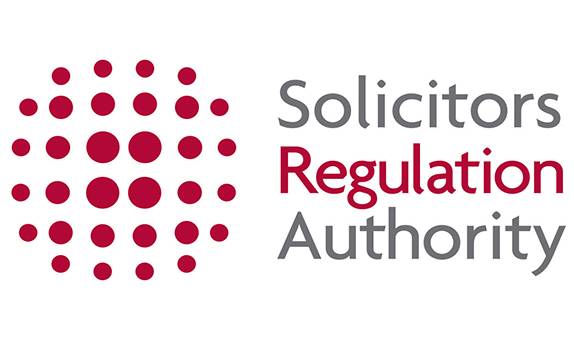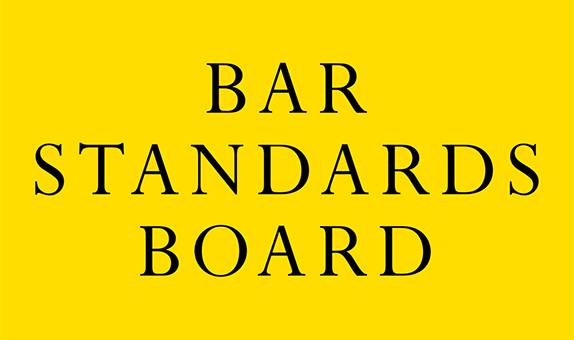Law LLB (Hons)

Teaching Excellence Framework (TEF) Gold award
Our commitment to high quality teaching has been recognised with a TEF Gold rating. The University has received an overall rating of Gold, as well as securing a Gold award in the framework's two new student experience and student outcomes categories.
Why choose this course?
We recognise that in the competitive legal world, graduates need to be more rounded than ever. Our LLB delivers all the benefits of a conventional Law degree, and a lot more.
If you're considering a legal career, this course is ideal. You'll gain an understanding of the English legal system and graduate with the legal knowledge, skills and experience valued by employers. Even if you're not considering a career in the legal profession, a law degree develops critical thinking, logical analysis, the power of argument, and effective oral and written communication skills.
Over the course of this degree, you may lead mock trials and cross-examine forensic experts and witnesses in court. You might work in our Legal Advice Centre, giving legal advice in domestic and consumer disputes, or you might participate in one of our international mooting or client interviewing competitions.
You'll graduate with legal knowledge, applied skills, and work experience that is highly valued by employers. This degree offers the opportunity to do internships during the degree, or a sandwich placement or study abroad as an additional year.
| Attendance | UCAS code | Year of entry |
|---|---|---|
| 3 years full time | M100 | 2025 |
| 4 years full time including professional placement | M103 | 2025 |
Please note: Teaching on this course may take place on more than one KU campus.
| Main Location | Penrhyn Road |
Reasons to choose Kingston University
- This course meets the academic stage requirements of the Bar Standards Board (BSB) for qualification as a barrister.
- For qualification as a solicitor, the course provides preparation for much of the Functioning Legal Knowledge requirements for Part 1 of the Solicitors Qualifying Examination.
- Law at Kingston University is ranked in the top three in London for six out of seven of the NSS 2024 themes, including number one for Student Voice and Organisation and Management.
- Professional Experience will help you develop both legal practice and general employability skills.
- There are a range of extracurricular activities available, from court visits in Central London to national and international law competitions. You can also take part in our annual Law Fair and Human Rights Festival.
- We invite guest speakers from industry, our alumni and academic experts to share their experiences, which often leads to internships with prestigious organisations such as SecurityWomen and the Minority Rights Group International.
- We have a personal tutor system in place to ensure every student can identify their strengths and access tailored support.
The Solicitors Qualifying Examination (SQE)
Please read here about the changes, which came into effect from September 2021, to the Solicitors Regulation Authority (SRA) qualification requirements.
Studying law at Kingston University
What our graduates say
Kingston's Department of Law
What you will study
Take a look at some of the content and modules that you may have the opportunity to study on this course:
Year 1
Year 2
Optional year
Final year
Year 1 introduces the English Legal System and Methods, including how to access and use legal materials. Public Law covers the UK's constitution and relationships between individuals and state. Law of Tort considers civil wrongs such as negligence, nuisance and occupier's liability. Law of Contract explores binding agreements and breaches.
Core modules
English Legal System and Methods
30 credits
This module develops your understanding of the English Legal System (ELS) - courts, procedure and sources of law - in order to make sense of your legal studies.
You will be equipped with a legal methods toolkit, covering skills for research, analysis and writing relevant to your studies and in legal practice.
This module also has a strong emphasis on developing your personal and professional skills. We will help you to build your professional identity and global citizenship, enhancing your understanding of ethical issues, values, design thinking and commercial awareness. You will be guided by your Personal Tutor to plan your own personal and professional development journey and identify your core graduate attributes.
Law of Contract
30 credits
The law of contract is the law of legally enforceable agreements and is at the heart of the English common law. It is one of the seven foundations of legal knowledge and invariably forms part of any degree with an overt legal content. It describes the rules which govern commercial activity, allowing businesses and consumers to maintain stable, consistent relationships over time and over distance. The law of contract covers everything from a complex multi-party agreement to construct a stadium, the employment of the cleaners and the star players, as well as the purchase of a hot dog from a stall outside.
Public Law
30 credits
The module introduces you to the constitutional and administrative law of the United Kingdom through a study of the core constitutional principles present within the UK legal system and the control of executive action by the courts. The module provides an essential introduction to the study of law since the validity of any particular law is a function of a constitutional rule which establishes manner, form and necessary pedigree for what is to qualify as a valid particular or occasional law.
Law of Tort
30 credits
Tort can be described as the area of civil law which provides a remedy for a party who has suffered the breach of a protected interest. The module focuses on the wide range of activity to which tort law applies and examines the remedies it provides for many different types of loss or harm. Tort is also one of the foundations of legal knowledge subjects required by the professional bodies as part of a qualifying law degree for those seeking entry to the legal profession.
In Year 2 you will build on what you have learnt in Year 1. Your Land Law module will cover property ownership, use and rights. In the Criminal Law module you will study murder, theft and sexual crimes. EU Law considers the single market (informed by recent politics).
Core modules
Land Law
30 credits
Land law studies the nature of land, the history of the current legislative structure and third party interests in, on and over private land in England and Wales. It introduces the concepts behind ownership and use of private land, considering also how the law operates in the context of freehold and leasehold title, rights of way and squatters' rights.
Criminal Law
30 credits
This module studies the general principles of criminal liability, definitions of what constitutes particular crimes and offences, and how that law affects particular circumstances. This involves not only a critical examination of the law, but also, using hypothetical factual situations, an understanding its detailed application.
Exploring EU Law
30 credits
The European Union's (EU) development has had a significant impact in Europe and globally. Although the UK has left the EU, its law is still relevant not only because it remains part of the applicable law of the UK, but also to understand how the UK now interacts with the EU.
You will develop detailed knowledge and in-depth understanding of the core areas of EU law, and the relationship between the EU and its member states and the respective role of the Court of Justice of the European Union and national courts in applying EU law.
This module also has a strong focus on developing your employability skills. You will take part in personal development activities designed to strengthen your professional identity and global citizenship, while expanding your knowledge of legal practice in different professional contexts.
Optional modules (choose one)
International and Comparative Law
30 credits
This module aims to provide an understanding of how globalisation affects our lives, though a specific analysis of public international law, and a comparative study of the French, German and American legal systems.
The first part of the module is spent on the legal history and sources of law of these legal systems, and then the constitutions and court systems in France, Germany and the US. This module consists of feedback/feedforward sessions and workshops. Workshops will focus on the comparative aspects of the legal systems.
The module then introduces you to public international law, which is a globalised legal system regulating the relations between states. It focuses first on the relevant institutions, the sources of international law, as well as the concept of international legal personality and statehood. The substantive part consists mainly of the use of force, the title to territory, the right to self-determination as well as the law of the sea.
Commercial Law
30 credits
This module has a focus on the sale and supply of goods, considering the legal framework within which such transactions occur. It also considers the law relating to consumer credit and the protections provided to the consumer by the law. It takes a critical approach to these matters and enables you to research particular areas, which forms a part of the assessment for the module.
Optional Study Abroad Year
You will also have the opportunity to spend a year abroad on work placement or studying at one of our partner institutions in North America, Europe, Australia or Asia.
In the Final Year, you will study Equity and Trusts, which considers wills, charitable trusts, and trustees. You will also study Law in Context, which will help you develop your legal reasoning and other key employability skills.
For the rest of your study you will be able to shape your degree around what interests you the most.
Core modules
Equity and Trusts
30 credits
This module examines the idea of conscience in English law. It looks at how, historically, equity developed from the authority of the King in order to ameliorate the problems caused by an increasingly inflexible common law, at a time when Parliament met infrequently. The concept of the trust, where ownership is divided between legal and beneficial owners, is examined including the conscience-inspired constructive trust, and the use of the trust in many contexts, including charity law. The administration of trusts is also considered.
Law in Context
30 credits
This module will help you to develop legal reasoning skills in specific legal contexts, such as environmental law, criminal justice, employment issues, business law, company law and family matters.
You'll analyse legal issues and how they apply to real-life scenarios, enhancing your employability skills. You'll also have a choice of pathways in which you can showcase your legal research, writing and presentation skills in a topic that interests you.
We will help you to further strengthen your professional skills, encouraging you to critically evaluate your own personal development and plan for your future career.
Optional Modules (choose 2)
Remedies and Legal Skills in Context
30 credits
This module considers the response of English law to a range of different wrongs and adopts a critical stance, encouraging students to question the effectiveness of the range of remedies available. It complements the study of contract, tort, equity and public law by placing them within a single coherent whole.
International Trade Law
30 credits
International trade would be of interest to students wishing to be employed in the commercial field in both the UK and overseas. This module covers the international legal and institutional framework for regulating international trade. The module helps you to understand different aspects of international law, and to be able to apply them to business and management problems arising in a global economy. The module examines the legal, economic, political and institutional underpinnings of the world trade regime, and the core principles and legal rules governing international trade in goods, and services. A key focus is the World Trade Organization (WTO), which began to work in 1995 as a general umbrella organisation coordinating laws affecting trade, but which has a much wider impact on the regulation of international business activities. The module also examines the various contracts that are essential components of international trade transactions, such as international sales contracts, the contract of carriage and the insurance contract. In addition, legal issues arising from international trade dispute settlement will be explored.
Company Law
30 credits
This module examines the most common juristic person, the company (limited by shares or guarantee and both public and private limited companies). The cornerstones of the module include critical evaluation of the role of the company as a separate legal juristic person; directors and their duties; shareholders and their rights and legal remedies; employees and their position under the Companies Act 2006. Close examination is undertaken of the policy and reform process leading up to the enactment of the Companies Act 2006. Primary sources (statute and case law) and secondary sources (academic comment, reform discussion) are used at length during the module. This module is relevant for anyone interested in working in the commercial world.
Employment Law
30 credits
The focus of this module is the legal framework surrounding the employment relationship - its formation, operation and termination. The statutory and common law context of employment, including EU aspects, is considered, along with the now extensive law on discrimination. The main features of the module are the contract of employment, remedies for termination including unfair dismissal and wrongful dismissal, equality law, and law relating to trade unions. The module is designed for students who are interested in discovering the practical problems concerning law at work in a modern flexible labour market. Employment law is of practical significance for all persons involved in the world of work.
Family and Child Law
30 credits
This module will be of interest to students who wish to study how the law regulates family life and how effective it is in doing so. The module covers the formation and termination of marriage and civil partnership; how occupation and ownership of the family home is regulated, and how effective these remedies are in cases of domestic violence; the law's approach to finance and property division on divorce, as well as maintenance for children, comparing this approach with the regulation of cohabitation. The module then considers legal parentage and parenthood; parental responsibility, and the regulation of disputes between parents about their children. Finally, local authority provision for vulnerable children and those who are experiencing harm in their families is considered, and adoption as a solution for children who cannot live with their birth families will be covered. This module aims to consider the law in context of social policy which encourages desired types of family behaviour.
Dispute Resolution
30 credits
The dispute resolution module makes extensive use of role-play in order to develop a deeper understanding of the dynamics that underlie conflicts, and of the process of dispute resolution. Comparisons are made with litigation and with other adversarial and quasi-judicial mechanisms to place mediation and negotiation in context. Themes are identified and discussed, often using role-plays, and the social and psychological aspects considered. The module also covers theories of conflict and conflict management, and the general landscape of dispute resolution.
International Criminal and Human Rights Law
30 credits
This module introduces you to the criminal law responsibility of private individuals and their human rights protection under international law.
The first part of the module focuses on the mechanisms of international criminal justice, and the law that underpins it. The sources and fundamental principles of ICL, institutional aspects of ICL are explored, from the Nuremberg Tribunals, to the international Criminal Court (ICC), as well as established international crimes (genocide, crimes against humanity and war crimes).
The second part of the module focuses on essential aspects of international human rights law. It examines the main international instruments which provide protection for human rights, substantive established human rights, the importance of the distinction between global and regional protection of human rights, with a special focus on the European Convention of Human Rights, as well as the mechanisms in place to protect and enforce these rights.
The final part of the module focuses on a number of crimes, analysed both from an international criminal law and international human rights perspective, such as the crime of torture.
Intellectual Property Law
30 credits
This module explores the legal protection given to intellectual property, and considers the particular types of intellectual property, such as copyright and patents. This is considered in the increasingly influential international context, and also draws on comparative study of the protection afforded in other jurisdictions and enables you to pursue research in individual areas of intellectual property law.
Law of Technology and Innovation
30 credits
This module explores the role of law in responding to, and shaping, technological innovation. It is designed to give students the competitive edge in evolving legal and non-legal markets that embrace technological development. Particular focus is given to standards and regulations of artificial intelligence, cyberspace and cybercrime, e-commerce, employment, environment, healthcare, intellectual property and outer space. These areas are of particular importance in the current global market. These are also the areas of research undertaken by academic members of staff at Kingston University, involved in teaching and development of the module. The module implements an international and interdisciplinary approach, covering different jurisdictions, technologies, and industries.
Environmental Law
30 credits
This module provides an introduction to environmental law. It outlines the different sectors of environmental law as well as providing an insight and understanding of the principles and concepts upon which environmental law is based. It also analyses the ways in which particular issues are addressed and, where appropriate, places these in their international context. It introduces you to the role that international environmental law has within the development of national environmental law.
Jurisprudence
30 credits
Jurisprudence causes you to take an analytical step back to address issues that may have been presupposed, or simply left unspoken, during your degree. Jurisprudence builds upon the black-letter subjects you have studied and places them in a theoretical and social context: it is a meta-analysis of law, which pulls together themes from all of the areas you will have studied until now.
Please note
Optional modules only run if there is enough demand. If we have an insufficient number of students interested in an optional module, that module will not be offered for this course.
Future Skills
Knowledge to give you the edge
Embedded within every course curriculum and throughout the whole Kingston experience, Future Skills will play a role in shaping you to become a future-proof graduate, providing you with the skills most valued by employers such as problem-solving, digital competency, and adaptability.
As you progress through your degree, you'll learn to navigate, explore and apply these graduate skills, learning to demonstrate and articulate to employers how future skills give you the edge.
At Kingston University, we're not just keeping up with change, we're creating it.

Kingston School of Law, Social and Behavioural Sciences
The School offers courses in economics, sociology, law, psychology and criminology. Our degrees are underpinned by a vibrant research culture and delivered by a blend of practitioners and academics who are dedicated to equipping you with the employability skills to thrive in your career.
You will have a wealth of opportunities outside the classroom to further your learning and gain hands-on experience in your chosen field.
Law Fair 2023
Law competitions
Accreditation
Although Kingston University's Law LLB course has been accredited by the Bar Standards Board (BSB) and the Solicitors Regulation Authority (SRA) as a Qualifying Law Degree, because of changes in the qualification requirements for barristers and solicitors, the QLD accreditation is no longer required for either qualification. However, the LLB course continues to meet the BSB's academic stage requirements, and meets the SRA's eligibility requirements for sitting part 1 of the Solicitors Qualification Examination.
Specialist careers support
You will take part in an Assessment Centre Experience, providing the opportunity to experience the pathway to employment with tailored feedback to help develop your employability skills for the world of graduate employment.
- Develop your understanding of the jobs market, including current trends and opportunities, different recruitment processes and how to identify relevant roles
- Receive personalised feedback reports to help you to improve and progress
- Access additional webinars on top tips, employer expectations and best practice

Entry requirements
Teaching and assessment
Scheduled learning and teaching on this course includes timetabled activities including lectures, seminars and small group tutorials.
Who teaches this course?
You will be taught by an experienced teaching team whose expertise and knowledge are closely matched to the content of the modules on this course. The team includes senior academics and professional practitioners with industry experience. Postgraduate research students and academic peer mentors may also contribute to the teaching of seminars under the supervision of the module leader.
The following group of staff members are currently involved in the delivery of different elements of this course. This pool is subject to change at any time within the academic year.
Additional costs
Depending on the programme of study, there may be extra costs that are not covered by tuition fees which students will need to consider when planning their studies. Tuition fees cover the cost of your teaching, assessment and operating University facilities such as the library, access to shared IT equipment and other support services. Accommodation and living costs are not included in our fees.
Where a course has additional expenses, we make every effort to highlight them. These may include optional field trips, materials (e.g. art, design, engineering), security checks such as DBS, uniforms, specialist clothing or professional memberships.
Law in Action
Our students actively participate in a wide range of practical activities linked to the curriculum and the legal industry.
- Legal Advice Centre
- Guest speakers
- Competition Success
- Law Society
After you graduate
Many graduates become solicitors or barristers. Other graduates work in law-related positions within business, government and non-profit organisations. Some also progress to study at masters level.
Our Law graduates have secured the following jobs:
- Barrister
- Associate
- Junior analyst
- Legal assistant
- Paralegal
- Account development executive
- Insolvency practitioner
- Financial consultant
- Court clerk
Graduates from the Department of Law have secured jobs in the following companies:
- KPMG
- PricewaterhouseCoopers
- Lyons Davidson Solicitors
- Fredrickson International
- BM Advisory (formerly Atherton Bailey Chartered Accountants)
- Hudson Advisors
- Gill Solicitors
- Stuart & Co Solicitors (formally Stuart Karatas Solicitors)
Key information set
The scrolling banner(s) below display some key factual data about this course (including different course combinations or delivery modes of this course where relevant).
Course changes and regulations
The information on this page reflects the currently intended course structure and module details. To improve your student experience and the quality of your degree, we may review and change the material information of this course. Course changes explained.
Programme Specifications for the course are published ahead of each academic year.
Regulations governing this course can be found on our website.

















